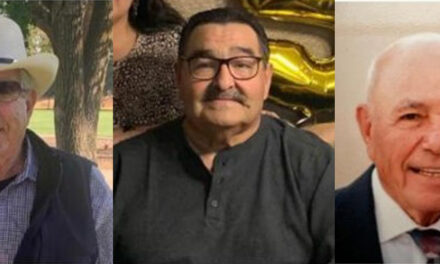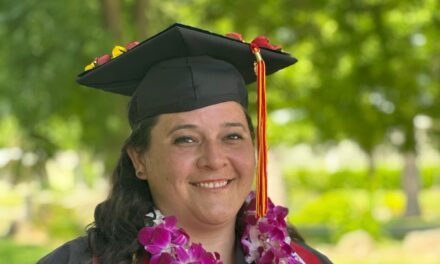From the time when I was a freshman until now a senior, the cell phone policy at Los Banos High School has been modified countless times.
In this era of technology cell phones have evidently become a part of everyone’s daily life. but what is the impact of this on schools?
At Los Banos High School, the current cell phone policy states that, upon entering classrooms, students must silence and put away their cell phones and may not access their phones unless permitted to by a teacher.
During instructional time, cell phones likewise may not be used in hallways, the library or restrooms. Students, however, can use their cellphones before school, during class changes, at lunch and after school.
When a student does not follow these rules, five progressively stern disciplinary measures are taken. The first offense includes the phone being confiscated for the rest of the school day until a student picks it up from the office, and a parent is to be notified by a teacher.
The second offense results in a conference with a Student Advocate and a parental notice, and then only a parent can retrieve the phone. The third offense entails lunch detention and parental notice.
The fourth offense requires that a student be given a one-day to three-day in- school suspension, a parent conference with administration, while the phone is confiscated for five school days and then picked up by a parent.
Any further infractions result in a student having to turn in his or her cell phone during the school day for a semester. Students who do not adhere to these guidelines will be subjected to other disciplinary actions.
Students are told that all phones turned in to be kept in the attendance office in a locked cabinet until claimed.
Meghan Souza, a beloved Los Banos High School teacher who has taught for 13 years and is currently the head of the science department, believes that cell phones are a “huge distraction to students when teachers are trying to engage them in activities.”
Nowadays, she said, even when students are not actively on their phones they are typically listening to music that is connected to wireless bluetooth headphones, which causes them to “zone out and tune out” what is being taught.
As a science teacher, Souza added, conducting labs can be very serious at times, and being on cell phones can be a safety hazard for students, especially when very specific instructions need to be followed to ensure a proper and safe experiment.
Although it is understandable that some cases may institute an emergency where students need their phones, Souza feels that most teachers are understanding and will permit a student to use a cell phone when they ask.
Souza came up with a clever way to combat cell phone use during instructional time. She set up charging stations where students could charge their phones for the entire period.
Instead of students handing their phones in, they leave it in charging stations. Not only does it ensure that students direct their attention towards the class, but students also benefit by having a fully charged device by the end of instructional time.
While teachers want to ensure that students’ cell phone usage is properly managed, some students believe that implementing such a policy will take away from instructional time more than a cell phone would, especially when such a rule entails suspension.
One hardworking senior at Los Banos High School, Sahar Ayubzai, said “The school has been battling with students for iPhone usage in the classroom for a while now, because cell phones have been distracting students during class time and are not allowing students to focus.”
While the new regulations implemented by the district may help control that, Ayubzai believes the regulations “go too far” with some of their demands. “Students getting their phone taken away for five days is just too harsh,” he said, “since the phone is the students’ property. The school shouldn’t be able to take it away just like that. School officials are exerting too much power in this situation.”
Ayubzai thinks it is inevitable that some students will use their phones in class more than other students, depending on how much they value their education. But implementing this policy, he said, makes some students feel unheard; they should be given the chance to manage their cell phone use on their own.
Prishaa Vala, a senior at Los Banos High School, is a Westside Express correspondent.



